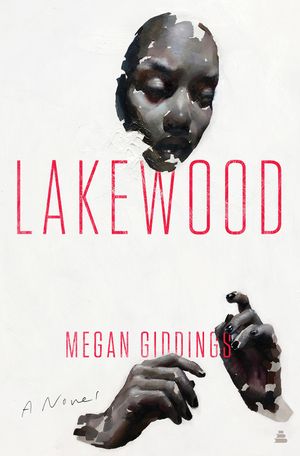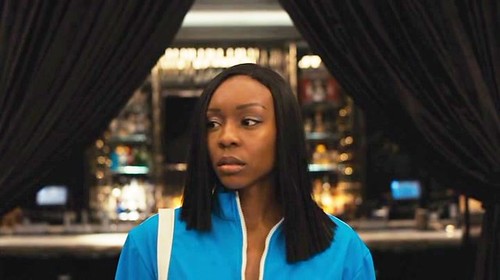Interviews
Why Is Dying in America So Expensive?
Megan Giddings, author of "Lakewood," on how our racist, capitalist medical system exploits Black bodies

In Megan Giddings’s debut novel Lakewood, desperation leads to a loss of self in a capitalist medical system bent on taking advantage of Black people and their bodies.
After the death of her grandmother, Lena, a college student struggling with overwhelming medical debt and taking care of her chronically ill mother, decides to suspend her studies and joins a very secretive medical research program in rural Lakewood, Michigan. The novel follows Lena’s experience as she agrees to participate in medical research experiments in exchange for a hefty payout and for all of her mother’s medical treatments to be paid for. The terms that Lena agrees to make her uneasy, especially the increasing severity of the experiments and how she and other people of color in the study are treated as test subjects.
I recently spoke with Megan Giddings about the biggest lies in literary fiction, the American dream for people of color, and the horror stories that speak to the historic and current exploitation of Black communities.
Leticia Urieta: Where did the idea for this book begin for you?
Megan Giddings: The first initial idea is surface-level. Some of it was based on the small town where I grew up. The more revisions I did, I thought of things that happened in my life such as a family member going through a health crisis who was ultimately fine but we had to spend a lot of money to get a lot of tests done. Some of it comes from anxieties from my childhood, like when I was four and I was dragging my leg and my parents couldn’t figure out what was wrong with me and no one could tell them what was wrong. I had to do all of these tests and I had a lot of different diagnoses and the final one was anxiety. All of these experiences collided by the end of the draft. It’s one of those things where you don’t realize what you were thinking about until after you’ve written it.
LU: You mention where you grew up and how that influenced the setting of the novel. The story takes place in Lakewood, a rural town in Michigan. This felt important to emphasize Lena’s isolation from her friends and her mother, to what is familiar, as well as to make her feel like a spectacle as one of the only Black people in the town. Why did this setting feel important to the story?
MG: Some of it is me borrowing from what I know. I grew up in a rural Michigan town and my family was one of five families of color. It does make you feel differently—some of it is the experience of a young black person where your parents are well-meaning but they’re still telling you things like “you have to act this way because people are going to make assumptions about other Black people because of you,” or “you have to work twice as hard,” which I feel like anybody who is not white has heard that from their parents in this country.
Some of it is also because I was writing about the Midwest. Even among Midwesterners there is a division between people who grew up in a small town or a larger city. You can tell right away about someone if they grew up in a small town and how much more guarded they are around you. Small towns make a person hyper aware sometimes and they make you less willing to be vulnerable. I think that even if Lena’s character was White, people in town would be a little suspicious of her and not immediately welcome her. I thought it added more pressure to her as a character and reflected a Midwestern experience, because many of us grew up in small towns.
LU: Do you think that making Lena immediately at odds with the people in Lakewood helped to create a tension from the beginning of the book?
One of the biggest lies of literary fiction is that the characters don’t think about money.
MG: Maybe so. Lately, I rarely enter a new space without some feeling of anxiety, especially in a majority white space. I don’t go into these spaces thinking, “Oh, everyone here is racist.” But, I immediately tense up. I wonder, “Are you all going to be cool? Are you going to say something wild as hell to me?” It adds a necessary tension to the novel. I started this in 2014, and I didn’t necessarily feel that immediate tension everywhere I went, but it was still there. It’s something that I have learned over time.
LU: What roles do sickness and desperation as they wear on Lena and her family play in this novel?
MG: I think that they’re very rooted in the personal for the characters. It comes from real world analogues of being deeply in debt or watching someone in front of me that I deeply love who is hurting and there is nothing that I can do other than offer them the slightest solace. I think those pressures are pressures that a lot of people feel every day.
For so many of us, even if it is on an unconscious level, we are thinking about money. There’s that constant thought of, “I might not be poor, but I can’t not be concerned.” I don’t have that relationship with money where I don’t have to think about it. I sometimes think that one of the biggest lies of literary fiction is that the characters don’t think about money. That is fantasy, at least for me, to be alive in this country and not think about money.
LU: That’s something I appreciated about this book. To begin this book with the immediate loss of a person who is so important to the main character and who has influenced who she is, but to also begin with the very extreme pressure of a young woman having to navigate debt is not something we see very often.
MG: Even just the cost of dying in this country makes me so mad, to the point where it is almost hilarious, or absurd. A friend told me that his father told him, “when I die, I put this amount of cash away in a safe, and you’ll need this money just to get through this.” It’s so hard to navigate this loss, and you have to pay so many people right off the bat.
LU: One of the things that is most compelling about Lena is how willing she is to endure physical pain and psychological trauma and manipulation during the Lakewood Project despite the red flags that tell her to turn back. Do you feel that you are addressing the legacy of how scientists and doctors historically used how much pain Black women could “endure” to justify “scientific experiments” that were really torture?
Even just the cost of dying in this country makes me so mad. It is almost hilarious, or absurd.
MG: It’s both legacy and something that I am still reading and learning about, whether in news articles or medical reports, where they focus on the idea that Black pain is so flexible to most doctors. As long as you don’t see people as people, you’ll do whatever the fuck you want. It’s not just about seeing us as people, but about recognizing power, and where it comes from.
LU: Right, and there is a tension from the beginning of the novel that builds as Lena navigates feeling on guard because of what this opportunity could mean for her but also considering what’s at stake, and the obvious power differentials between her and the people conducting the experiments. Throughout the novel, Lena loses sense of time and what exactly is happening to her during the experiments, especially as more and more unnerving things happen to her. As someone who gravitates towards speculative fiction, were you considering common horror tropes while writing?
MG: The tension for me comes a lot from analyzing anxiety and the feeling of being so nervous, or frustrated or scared that you start disassociating. I think the horror tropes come in more when building setting and scene, because I was thinking of a small town that is mysterious. That’s not an original concept. The setting of the woods that Lena visits contains a bit of horror, but I was thinking more about folklore when writing those scenes. The woods is a place where anything is possible and it is a very transformative space. Woods are also filled with natural death—the rot, the whole cycle of living.
LU: That’s interesting. I was thinking of body horror in the novel and how the book reflects some horror films that incorporate medical experimentation, but I appreciate that you are also bringing elements of folklore into this. Were there any particular stories or traditions that you were drawing on?
MG: Early on, I was reading and thinking about Ovid’s Metamorphosis. So many of those tales are about someone desperately wanting something, and then they become transformed—they become a swan, they become a shower of gold, they become all of these things and there is a destruction of who they were in the process of them getting what they think they want.
LU: How do you think that that informs Lena?
Don’t you think that the American dream, at least for people of color, is the ultimate destruction of who you are?
MG: Don’t you think that the American dream, at least for people of color in this country, is the ultimate destruction of who you are? You have to obliterate your Blackness, your brownness; you have to become a set idea of what a success story is in this country if you want money or stability in the traditional sense. And you are forced into these places that make you obliterate who you are because you have to fit into the kind of person who can “achieve” this kind of dream.
LU: Would you say that this book is also about grief?
MG: Yes, this book is about grief, especially a young person’s grief, where it consumes you and swallows you and you don’t have the emotional infrastructure to not just do risky things sometimes. A much simpler version of this novel would be a young Black woman grieving and fucking up and trying to find a way to still be alive when someone that she loves so much is gone and the other person that she loves seems on the verge of leaving her in different ways.
LU: The intergenerational love between Lena, her mother and her grandmother is a beautiful aspect of the book that shows how women often find strength and solidarity across their shared experiences. Why did that feel important to the development of the story?
MG: There’s something deeply underrated about the culture of family. I was most interested in writing a book about the natural push and pull inside a person in relationships with their family, in people who are stunningly like you and sometimes disappointingly not like you. It was meaningful for me to think about these three women who loved each other deeply and how different their perspectives of their lives were.
There’s this writing exercise that I’ve done sometimes that is useful for a novel or longer work. You think of an issue in the novel that comes up and you should be able to chart how the character’s responses are nuanced and different from each other. That’s how you know that the characters are starting to come alive, and are not just reflections of your own perspective.
LU: I love that exercise, and I think that really comes through in the book. What are you working on now?
MG: I am working on a second novel. It could change, because novels are strange, and they shift and surprise you, but it is about a mother and a daughter and witches. It’s about a world that is mostly like our own except that the witch burnings that have happened all over the world were often of real witches. In some ways it’s about a legacy of what it means to be a woman and about the push and pull between a mother and a daughter who might have different ideas of how to live.









